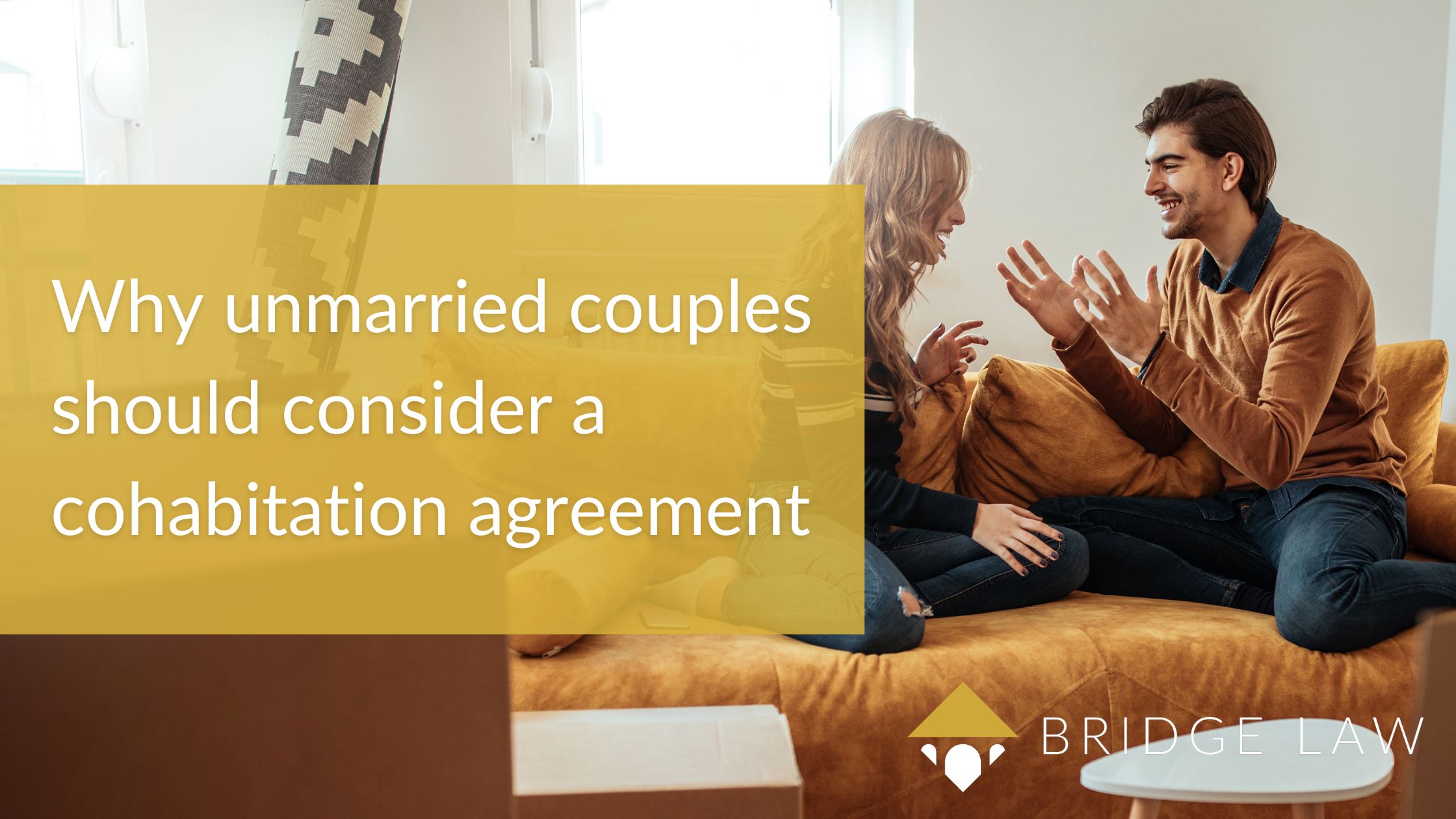Why unmarried couples should consider a cohabitation agreement

Nowadays, more and more couples live together like traditionally married couples do, but without feeling the want or need to get married, for many different reasons. Although no one, whether married or not, wants to think about their relationship ending or their partner passing away, everyone should understand their legal rights and the protections that are available to them in these situations – to make informed decisions on issues that may, at some point in future affect them – such as the choice of whether or not to enter into a cohabitation agreement.
In this blog, we explain the differences between being classed as common law married and being actually married and why cohabitation agreements can be beneficial.
Do long-term cohabiting couples have similar rights to married couples?
Many cohabiting couples believe they are ‘common law married’ if they have lived together for over a year and are under the impression that they have similar legal rights and protections of those that are married. This is a common misconception that is just not the case and should the relationship end or one party pass away, they could end up losing their home and assets that they have benefitted from or built up during the relationship.
Why consider a cohabitation agreement?
Cohabitation agreements are something cohabitating couples should consider to provide both parties some peace of mind that they can agree terms, providing reassurance and have some legal rights and protection in the event of a relationship either ending, one party falling seriously ill or passing away. Without a cohabitation agreement in place, unmarried couples often do not have many legal rights at all and making legal claims is very complex and expensive.
The agreements can cover arrangements for how finances, property and other assets would be divided in certain events, as well as arrangements for any children of the relationship. Cohabitation agreements can also include information on your responsibilities and how bills and mortgages would be divided during the relationship.
A lot of people either do not know about them, or are put off entering into a cohabitation agreement because they decide to wait until they get married, when additional rights will be acquired generally – however, unfortunately, you can never know when the unthinkable may happen – so it is always best to protect yourself, just in case. Cohabitation agreements will usually become void once you are married, so if you wanted such an arrangement to still be in place, you should enter into a prenuptial agreement before marriage.
Other reasons to enter a cohabitation agreement include providing access to each other’s state pensions and also documenting your consent to speak for your partner and obtain information, similar to next of kin rights in medical emergencies. Having an agreement in place can also save you hundreds to thousands of pounds in legal fees, should you be in the situation where your relationship ends or one party passes away.
How to ensure a cohabitation agreement is legally binding?
If you decide to go forward with entering into a cohabitation agreement, it’s important that both parties seek professional and independent legal advice – to ensure the agreement protects both parties interests and reflects what both parties want. The agreement should be drawn up by a solicitor to ensure it is legally binding.
In the event your life circumstances change as a couple, for example you buy property, emigrate, have children, adopt etc., then you need to update your agreement to reflect this to ensure it remains legally binding. This would also be an appropriate time to update your Will too – if you haven’t already made one, this is something that every adult should have in place, especially cohabiting couples, even if a cohabitation agreement hasn’t been entered into.
If you would like further advice on cohabitation agreements or making a Will, contact specialist Family Law, Wills and Probate Solicitor, Carol-Anne on cab@bridgelawsolicitors.co.uk or call 01484 442 700.
Written by Carol-Anne Baker

Cohabitation, Cohabitation Agreement, Family Law, Legal Advice
